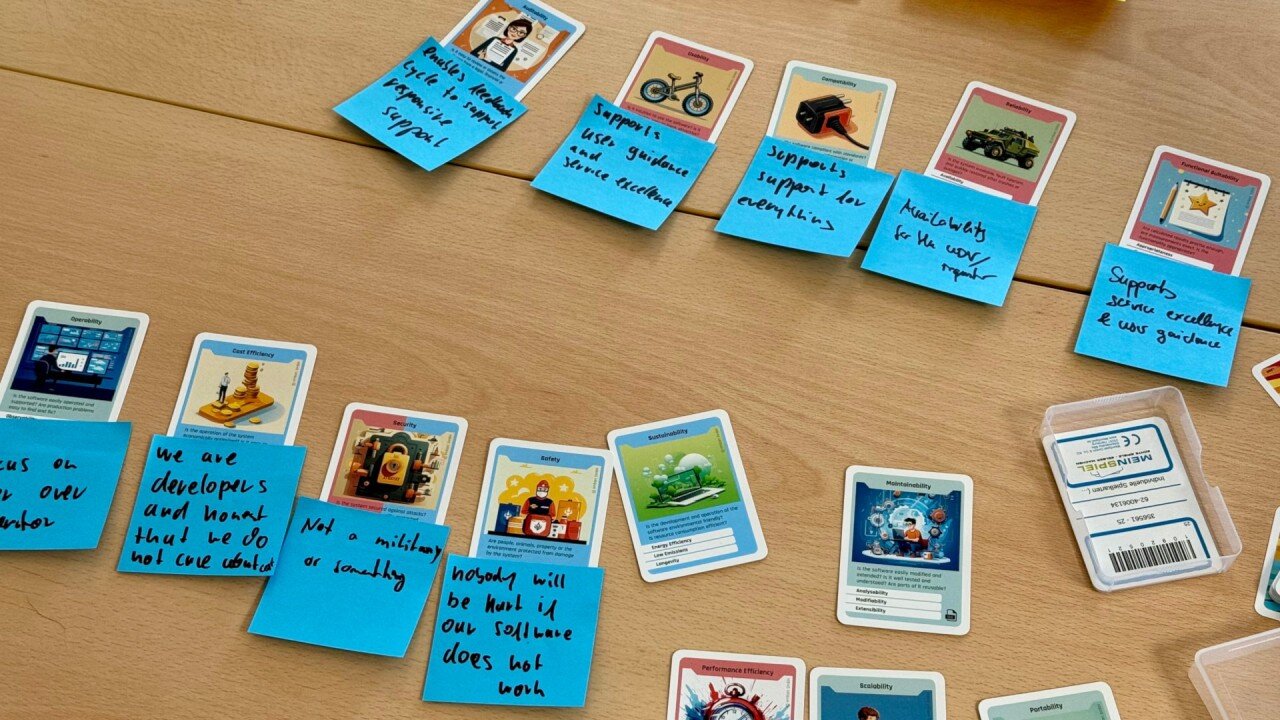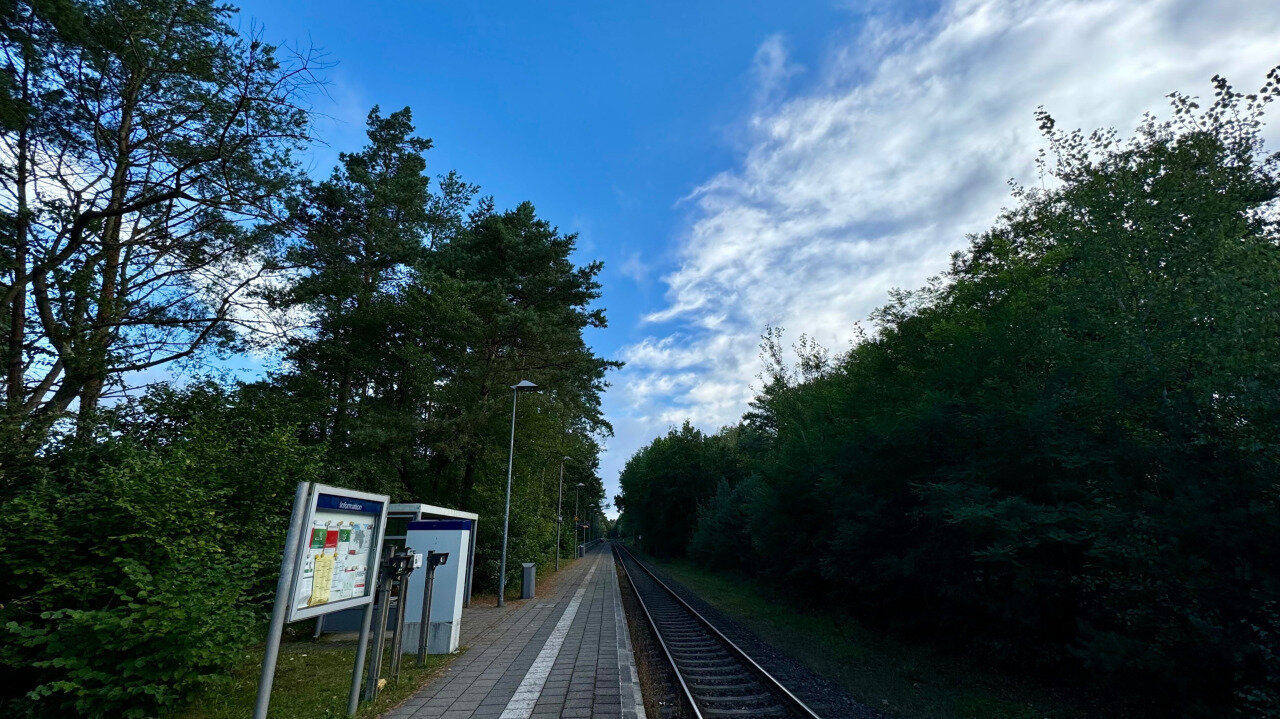
Saturday morning, 6:13 a.m., my ICE train leaves Vienna Central Station on time. After three days at ComoCamp, it's time to head home. Tired, but happy. As always after such inspiring events as ComoCamp or SoCraTes.
Once again, I am thrilled by ComoCamp, this unique unconference that brings together practitioners of collaborative modelling methods with leading minds and thought leaders. As in previous years, it was a great event where we meet on equal terms and all learn from each other.
Workshops
On the first day, I attended the workshop "Event Modelling with User Story Mapping" by Moritz Fromwald and Patrick Säuerl. Event modelling, developed by Adam Dymitruk, is a method for describing systems by showing how information within them has changed over time. Moritz and Patrick's workshop combined this approach with user story mapping, a visual method for planning and prioritising development from the user's perspective.
Another workshop I attended was "Domain Transformation" by Carola Lilienthal. In her workshop, Carola presented the Domain-Driven Transformation method, which she developed together with Henning Schwentner. This approach helps to transform legacy projects on a strategic, technical and team organisational level. In doing so, they draw on ideas from, for example, domain-driven design, collaborative modelling and team topologies.
Open Space
Over the next two days, I immersed myself in open space sessions on various topics such as scenario casting and event modelling. Two sessions stood out for me:
First, "F---ing up projects: A Manual" by Fabian Blechschmidt. Fabian shared his experiences from failed projects in an entertaining way. This sparked a good discussion among the participants and led to the exchange of a few stories.
The second session I would like to mention was Stefan Toth's on collaborative software reviews with LASR. As the name suggests – Lightweight Approach for Software Reviews – this method helps with the review of software systems. After a brief introduction by Stefan, we were able to try out and practise what we had learned in small groups using practical examples.
Thank you!
What makes ComoCamp so valuable to me is the extraordinary community. I have only ever experienced this inclusive atmosphere, in which knowledge is exchanged without hierarchy, at ComoCamp and SoCraTes .
I would like to express my sincere thanks to Stefan Priebsch, Henning Schwentner, Martin Schimak and Daniel Sack, as well as their "helping hands" who volunteer their time to organise this event. Their commitment enables all of us to grow in this inspiring environment and to shape the future of collaborative modelling together .
For anyone who would like to have this experience too: the next ComoCamp will take place in Vienna in May 2026.



